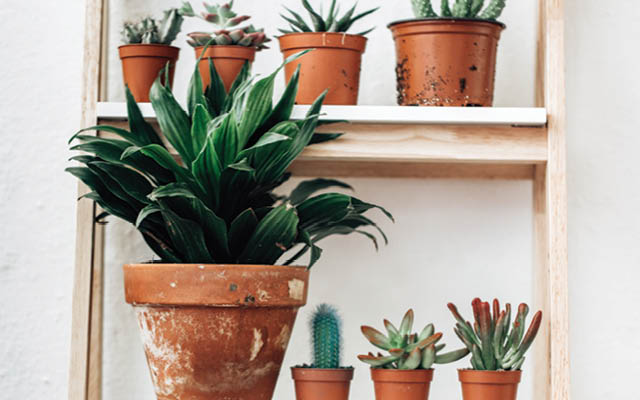If you’re feeling cooped up due to a double whammy of the pandemic and winter, houseplants may be a key to brighter days.
Those seemingly innocuous plants bloom with a wide array of physical- and mental-health benefits, according to numerous studies. Even NASA has researched the pluses of a simple ivy plant. These are some of the findings.
- Cleaner air: To filter air for astronauts who were seriously cooped up in the orbiting space station, NASA scientists famously found in the 1980s that basic houseplants provided effective air detoxification and could even scrub out cancer-causing volatile organic compounds like formaldehyde and benzene.
Later studies showed plants can help prevent seasonal allergies, and soil microorganisms in potted plants also play a part in cleaning indoor air. It requires a mini jungle to produce a measurable difference in air quality, but NASA notes the larger and leafier the plant, the better: Astronaut-approved flora include philodendrons, pothos, ivy, and spider plants. - Sweeter ambiance: Research suggests that plants can help make our homes environmentally friendly by raising the humidity to more comfortable levels, absorbing noise, and even reducing dust and air particulates. The result? A nicer indoor environment.
- Calmer living: Multiple studies show that house plants calm us and make us feel more content; when we’re around them, it reduces psychological and physiological stress by relaxing our autonomic nervous system and diastolic blood pressure. And it may even boost our immune system.
- Enhanced productivity: Whether you’re working in an office or at home, plants have been found to boost productivity, concentration, and mental processing, and reduce mental fatigue.
- Relaxing hobby: Caring for plants connects you to the outdoors and nature. For beginners, ZZ plant, snake plant, and Christmas cacti are easy plants that can survive even if neglected.
This article originally appeared as “Planting Health” in the March 2021 issue of Experience Life.




This Post Has 0 Comments